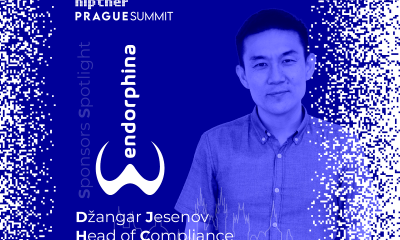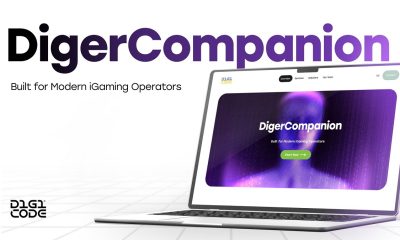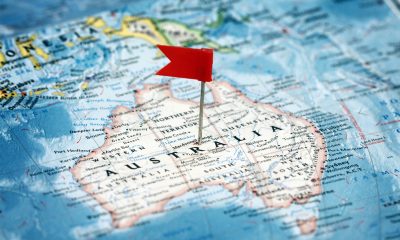Compliance Updates
How payments can drive iGaming operators’ growth as they navigate an evolving regulatory landscape
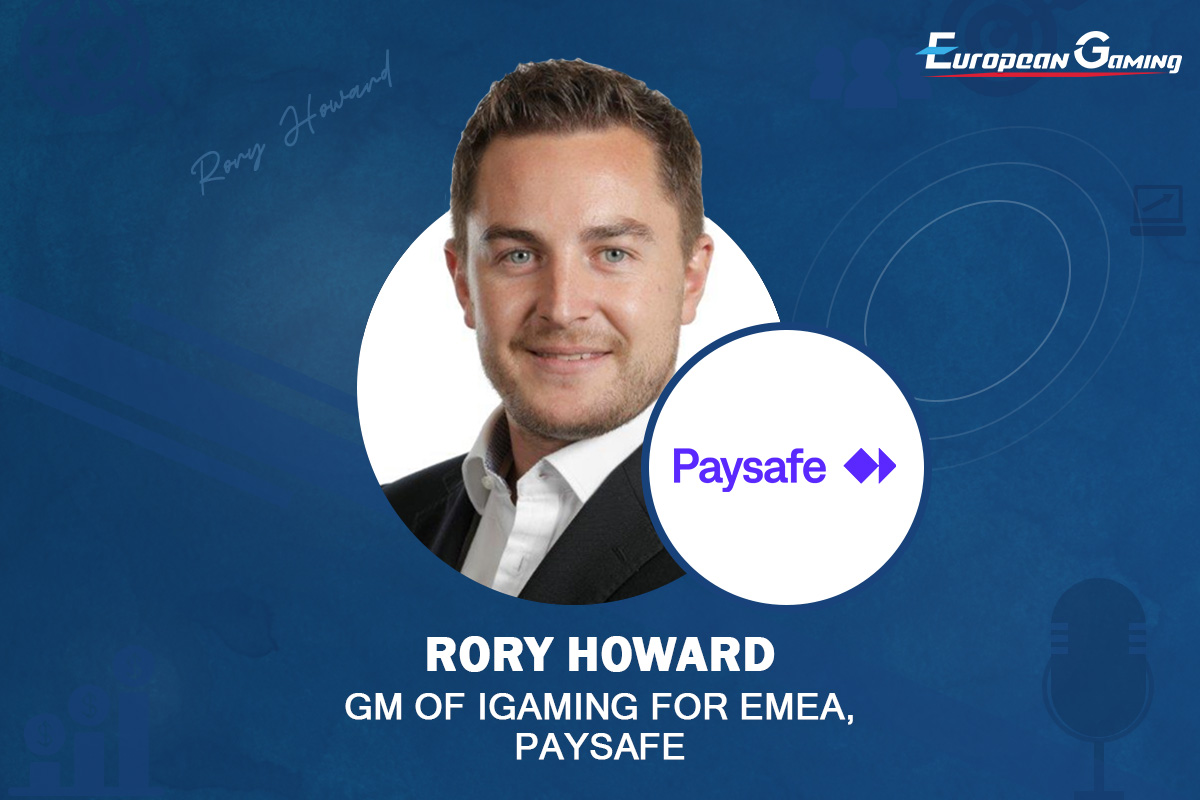
With iGaming regulation changing in multiple European and Latin American markets, Paysafe’s Rory Howard considers the invaluable role of payments
By Rory Howard, GM of iGaming for EMEA, Paysafe
After enacting new gambling legislation at end-2023, Brazil is expected to launch its iGaming market on January 1st. With 215m people, Latin America’s most populated country is almost certain to rapidly become a major global jurisdiction. Annual gaming revenue is forecast to grow to $4.9bn within five years, according to Vixio.
While the new Brazilian market offers an important opportunity for operators, licensing includes significant regulations to negotiate, including around payments. With other markets also enacting or considering more robust iGaming regulation, the operators that successfully navigate this new space can make change pay.
From Sao Paulo to Sweden via the UK
In April, Brazil published an Ordinance on operators’ payment requirements, preventing players from depositing using credit cards, cash, cheques, pay slips, bank slips and cryptocurrencies. Withdrawals of winnings will only be possible via electronic transfer between the operator and the player’s bank account, which must be a financial institution authorized by the Brazilian Central Bank.
Such restrictions, especially around credit cards, are part of a broader global trend to promote responsible gambling. In neighbouring Argentina, the Buenos Aires legislature is currently considering a bill to ban credit cards and social assistance debit cards for online betting in the capital region’s regulated market.
Over in the UK, operators have not been able to offer credit card deposits since the Gambling Commission restricted this in April 2020. More recently, the UK government’s Gambling Act Review white paper, which was released in April 2023, has resulted in more robust know your customer (KYC) checks for operators, including on affordability. From August all UK bettors depositing a net £500 needed to be checked, lowered to net deposits of £125 from February.
And UK operators are also facing marketing restrictions. From summer 2026, front-of-shirt Premier League football club sponsorships will no longer be an option following the association’s voluntary ban. In addition, the government is currently considering whether bonuses should be tightened, though it appears unlikely that the UK will go as far as Brazil’s complete ban on bonusing and free bets.
The UK isn’t the only European country strengthening its iGaming regulatory framework, with Sweden only allowing operators to offer players a single sign-up bonus following the Scandinavian country’s re-regulation of the market in 2019. More recently, the Swedish gambling regulator has come out in favour of the government’s proposed ban on credit cards for iGaming from April 2025.
Playing and paying it forward
With Sweden’s eastern neighbour, Finland, looking to liberalize its government monopoly with a licensing system for private operators by early 2027, the only constant when it comes to iGaming regulation is change. While regulatory change providers operators with opportunity, they need to have a solid strategy in place.
The global regulatory space is highly complex and diverse, so it’s essential for operators to develop a robust compliance framework that covers all the different legal requirements for each global market. Against the backdrop of the responsible gambling shift, KYC protocols have never needed to be more granular, requiring automation and specialised software for the highest accuracy and efficiency.
Payments are an indispensable element in negotiating the new regulatory landscape. Every market is unique, including when it comes to payments. If a jurisdiction restricts credit cards or other payment methods, operators’ cashiers need to include alternatives such as digital wallets, eCash or even pay-by-bank options to ensure players don’t abandon a brand before they become a customer.
With markets restricting bonuses and other marketing channels like sponsorships, operators need to ensure they are getting payments right. Payments – including quick payouts and deposits and the availability of preferred payment methods – are much more important factors in players’ selection of online sportsbooks than sign-up offers and sports sponsorships, according to Paysafe’s 2024 research.
More broadly, it’s also vital for operators to choose the right payment provider. Partnering with a payments company with global experience and which offers a comprehensive range of its own and third-party payment solutions, including local payment methods (LPMs) like Brazil’s Pix, will enable operators to effortlessly tailor their cashiers to a particular market.
Whether in Brazil, Argentina, the UK, Sweden or Finland, the global iGaming market is diversifying from a regulatory perspective. While the changing space poses significant challenges, it gives savvy operators an opportunity to ensure their brands and cashiers are not only compliant but have a completive edge that will ultimately pay out.
Rory Howard
As General Manager for iGaming in the EMEA region at Paysafe, Rory oversees the company’s online gambling business in the U.K. and continental Europe as well as neighbouring regional markets. He has close to 20 years’ experience in payments and fraud analysis, with a strong focus on the iGaming space. Rory’s previous roles include payment leadership positions at The Rank Group, Racing Stars, Gamesys, and Eyas Gaming.
The post How payments can drive iGaming operators’ growth as they navigate an evolving regulatory landscape appeared first on European Gaming Industry News.
Compliance Updates
Spillemyndigheden: New Guidance on Responsible Gambling

The Danish Gambling Authority has published a new gudiance on responsible gambling, which is targeted licence holders who offer betting and online casino.
The guidance reviews the rules on responsible gambling and also contain interpretations on how, as a licence holder who offers betting and online casino, can meet the requirements to offer gambling in a responsible manner.
The DGA’s guidance on responsible Gambling for Betting and Online Casino
The post Spillemyndigheden: New Guidance on Responsible Gambling appeared first on Eastern European Gaming | Global iGaming & Tech Intelligence Hub.
Betting and Gaming Council
BGC: Government Tax Hike Boost for Black Market

The Betting and Gaming Council (BGC) has warned that the incoming British tax hikes will boost black market activity.
Based on a new polling by Anacta reported in February 2026, there are concerns that proposed UK government gambling strategies, particularly regarding increased taxes, could contradict their intended harm-reduction goals.
While ministers have launched a consultation to ban unlicensed operators from sponsoring football clubs, including in the Premier League, ordinary punters fear the Government’s new tax rises could drive millions straight into illegal gambling sites, the new poll reveals.
The poll, conducted found:
• 52% of people who bet believe higher taxes will make punters more likely to use unlicensed black market sites.
• 66% of those who bet say tax increases will make betting and gaming less enjoyable.
• 57% think UK gambling is already heavily regulated.
With around 22.5 million adults placing a bet each month, the Government’s disastrous tax hikes will drive millions more to the harmful black market.
Grainne Hurst, Chief Executive of the Betting and Gaming Council, said: “When you tax responsible, regulated betting and gaming companies harder, you do not reduce demand you simply drive customers towards the unsafe, unregulated black market.
“Illegal gambling sites do not pay tax. They do not contribute to British sport. They do not invest in safer gambling and they do not protect vulnerable people.
“If the Government wants growth and genuine consumer protection, it must back the regulated sector not make it less competitive against criminals.”
The regulated sector supports 109,000 jobs, contributes £6.8 billion to the economy and generates £4 billion in tax revenue, funding everything from the NHS to schools and local communities.
The post BGC: Government Tax Hike Boost for Black Market appeared first on Eastern European Gaming | Global iGaming & Tech Intelligence Hub.
Compliance Updates
Endorphina Compliance Strategies Explained ahead of HIPTHER Prague Summit
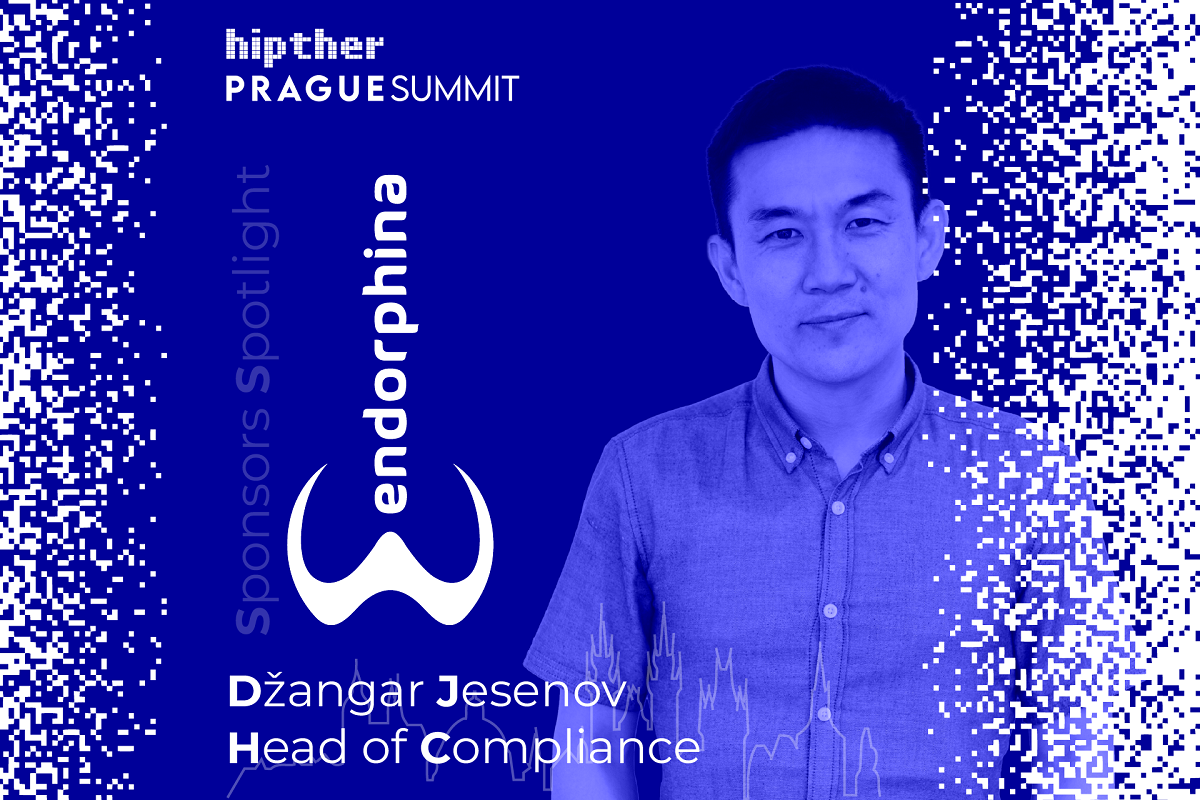
Ahead of the HIPTHER Prague Summit 2026, we speak with Džangar Jesenov, Head of Compliance at Endorphina, to explore how the company approaches regulatory excellence, market expansion, and certification in an increasingly complex global iGaming landscape – and how strong compliance frameworks support sustainable growth across Tier-1 European markets.
You have been leading Endorphina’s compliance function since 2021. How has the regulatory landscape in Europe evolved during this period, and what shifts have had the biggest operational impact on suppliers?
If I were to compare Endorphina in 2021 and Endorphina in 2026, I would describe them as two fundamentally different projects that nevertheless share the same core identity. The primary objective remains unchanged. However, the tools, scope, and operational framework used to achieve that objective have evolved significantly.
The development of the project reflects various external factors, including increasingly stringent regulatory requirements across multiple jurisdictions, technological advancements particularly within the financial sector and, importantly, substantial strengthening of human resources. Ultimately, people remain the most critical element in any successful project.
– From a regulatory perspective, I would particularly highlight the introduction and expansion of B2B licensing policies
Across jurisdictions on different continents, and the increased responsibility placed on game suppliers.
– Most notably, the heightened focus on player protection and security
In my view, enhanced player safety is one of the most important developments in the industry. Delivering engaging, high-quality games that are fully compliant with applicable legal frameworks is the foundation of any successful online platform and this is a commitment we uphold 24/7/365.
Endorphina has successfully expanded its presence across Tier-1 European markets. From a compliance perspective, what are the key pillars that enable smooth market entry and long-term sustainability?
In practice, there are unfortunately no “miracle tools” that would allow us to operate seamlessly at the highest regulatory level.
– I may not be saying anything new or particularly surprising here, but behind every jurisdiction we enter lies a substantial amount of work
Each market requires extensive hours of analysis, including a detailed review of regulatory obligations, comparison of local data requirements and reporting outputs, development of internal policies tailored to the specific regional framework, structured internal data sharing across project teams, and the implementation of oversight mechanisms to ensure compliance with newly introduced rules.
There is a significant amount of daily routine involved continuous processes, reporting, analysis, and, where necessary, re-implementation of procedures, including updates or revisions of internal regulatory frameworks.
Certification and regulatory alignment remain major challenges for many suppliers. How does Endorphina structure its internal processes to ensure efficiency while maintaining full regulatory integrity?
With the development of regulatory obligations, our practices in this area are also evolving. Compliance in the gambling business matures like fine wine. The more stable your team is, the stronger your position on the market becomes. Today, regulations are being introduced in many new jurisdictions where gambling was completely prohibited just a few years ago, and I see this as progress from a regulatory perspective.
– Our internal processes are continuously evolving toward the automation of data that does not require increased attention
Human resources are instead focused on information that is more relevant and requires deeper integrity.
With increasing focus on information security, responsible gaming, and technical standards, how do you see the role of compliance teams evolving within modern iGaming organisations?
As regulatory obligations continue to evolve, so does our practical experience in this area. Compliance in the gaming industry matures over time – much like fine wine.
– The more stable and experienced your team is, the stronger your position in the market becomes
Today, regulation is being introduced in many new jurisdictions where gambling was completely prohibited just a few years ago. I see this as a positive development and a clear indication of progress from a regulatory perspective.
Endorphina has built a reputation as a trusted slot provider with a strong global partner network. How should compliance, product development, and commercial teams collaborate today to support scalable growth?
As Head of Compliance, I believe scalable growth is only achievable when compliance, product development, and commercial teams operate in full alignment rather than in silos. Compliance must be involved from the earliest stages of market entry and product design to prevent delays, reduce regulatory risk, and support sustainable expansion.
– Product development should focus on modular, certification-ready solutions that allow efficient adaptation across multiple jurisdictions
Commercial strategy must remain closely aligned with regulatory feasibility, ensuring that opportunities are both attractive and compliant. Ultimately, stable and experienced teams are the key factor in building long-term, regulatorily resilient growth.
Looking ahead to the next 12–24 months, which regulatory or market developments should operators and suppliers be preparing for most carefully?
In this area, we are working very intensively. Looking ahead, I anticipate further increases in regulatory obligations, faster development of regulated markets, and structural changes in core online gaming products.”
– I expect deeper integration of games with the player environment, placing greater emphasis on individual profiling and personalization of each session
These evolving models will inevitably be reflected in regulatory frameworks, with a stronger focus on player protection and proper tax accountability. At the same time, regulators will increasingly compete to attract high-quality market participants, a category to which Endorphina clearly belongs.
In the near-term perspective, many of today’s processes will become standard industry practice, while additional requirements will emerge, particularly those linked to the accountability and oversight of key individuals within licensed entities.
Endorphina is the GamingTECH Awards Party & Ceremony Sponsor at HIPTHER Prague Summit 2026. What would you like operators, partners, and industry peers to take away from engaging with your team during the event?
Thank you for the opportunity to be among the first to welcome our friends. First and foremost, I would like to thank everyone who will be joining us in person in one of the most beautiful cities in the world, Prague.
I wish all participants a truly enjoyable experience.
– Make the most of every moment spent among inspiring people
Boost your personal endorphin levels and take the opportunity to get to know the Endorphina team more closely.
The post Endorphina Compliance Strategies Explained ahead of HIPTHER Prague Summit appeared first on Eastern European Gaming | Global iGaming & Tech Intelligence Hub.
-

 Baltics5 days ago
Baltics5 days agoHIPTHER Baltics Launches in Vilnius with Agenda Revealing Lithuania’s 2026 Regulatory Reset
-

 AI-Powered Compliance and Player Support5 days ago
AI-Powered Compliance and Player Support5 days agoDigerCompanion — Digicode’s AI Solution for Compliance and Player Support in Regulated iGaming
-

 Amusnet5 days ago
Amusnet5 days agoAmusnet Enters into Strategic Partnership with Twinsbet Arena in Vilnius, Lithuania
-

 Andrew Cardno5 days ago
Andrew Cardno5 days agoQCI Launches its Data Community Platform in Australia
-

 Latest News5 days ago
Latest News5 days agoSpinomenal Debuts Magical Genie — 3×3 Hold & Hit Adventure
-

 Brazil5 days ago
Brazil5 days agoOctoplay Enters Brazilian Market Through a Strategic Partnership with Superbet
-

 Free spins5 days ago
Free spins5 days agoOnlyPlay Releases Pub Fruits
-

 Latest News5 days ago
Latest News5 days agoWhen Everyone Sends Hearts, WinSpirit Asked a Different Question









